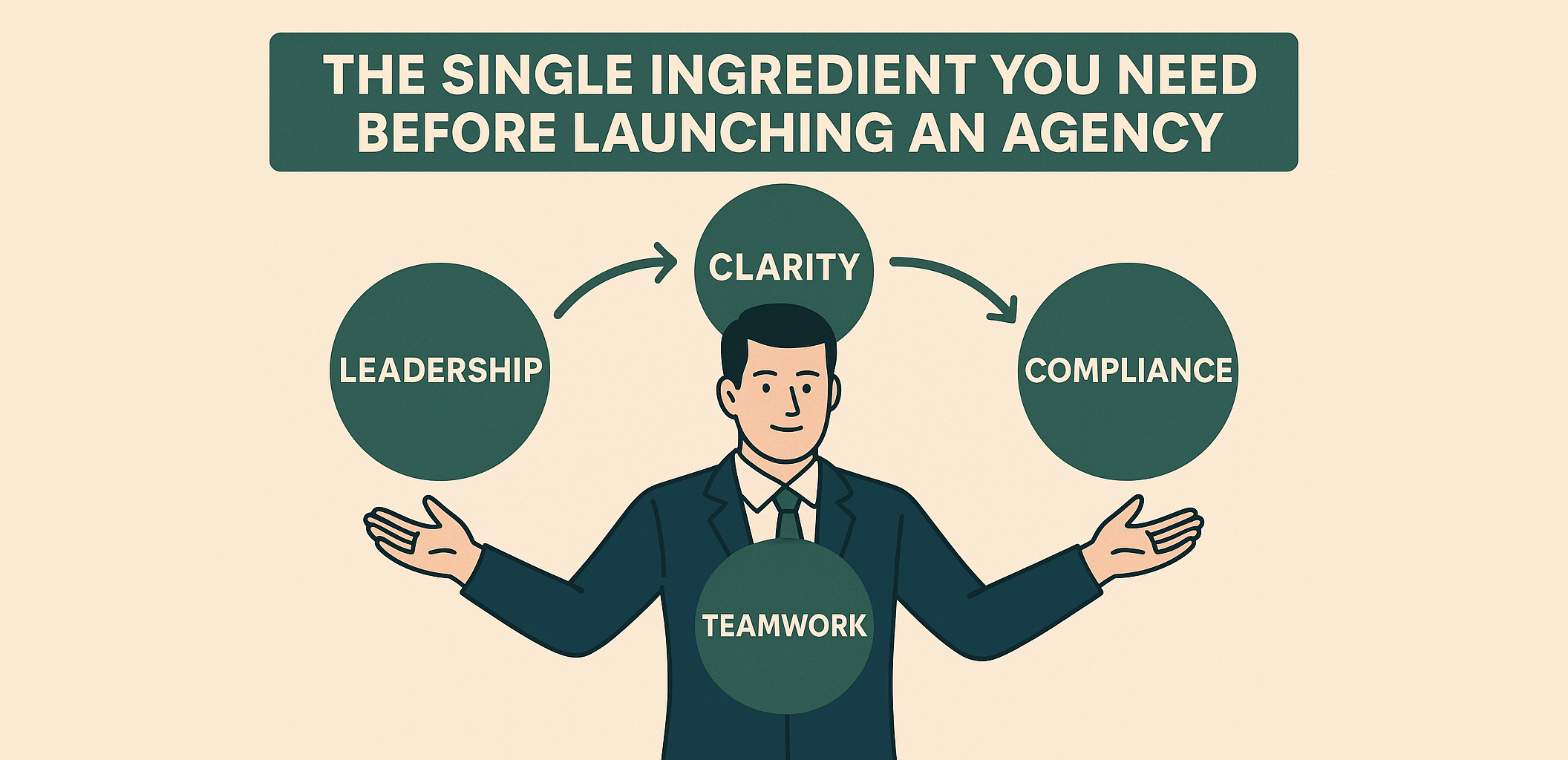The Human Foundation of Every Agency

Every agency begins as an idea — a belief that things can be done better.
But before that idea becomes an entity, before licenses are approved or office lights turn on, there’s something deeper that determines its survival: the human foundation.
Money may fuel growth, but people define direction. And among them, one person sets the tone — the founder.
The Founder as the Operating System
In the early stages of an agency, the founder’s mind is the entire infrastructure.
The way you think, decide, and communicate becomes the company’s first operating system.
If the founder values discipline, that discipline flows through the team.
If the founder values relationships, collaboration thrives.
If the founder operates on chaos or emotion, the firm inherits the same instability.
The founder’s thinking determines how the company behaves when no one is watching — how it handles setbacks, negotiates with clients, or enforces integrity in commission splits.
A strong agency isn’t built by structure alone; it’s built by alignment — a consistent pattern of thinking from the top to the bottom.
From Vision to Value Creation
Before an agency can grow, it must define its purpose beyond profit.
What unique value does it create for both agents and clients?
A sustainable agency operates with a three-tier vision:
- Value Creation – Clear benefits for agents, clients, and developers.
- Operational Clarity – Defined processes that make every role efficient.
- Profit Pathway – A realistic, traceable route from daily transactions to long-term financial stability.
Most agencies skip this strategic middle ground. They either focus entirely on recruitment (“grow headcount fast”) or on branding (“look big, act confident”). But the agencies that last are those that understand how daily activity connects to long-term economics.
Connecting Top to Bottom
A founder’s real test isn’t creating vision statements — it’s connecting that vision to the field. That means translating strategic ideas into daily actions that RENs can understand and execute.
How should an agent prioritize between project launches and subsales?
How should follow-ups be tracked, not forgotten?
How should co-broking be rewarded fairly?
When leaders design operational clarity, people perform with confidence. When they don’t, performance becomes luck.
The most successful agencies are those where communication flows vertically — where the founder’s direction reaches the ground, and the ground’s feedback reaches the founder.
Compliance as the Framework of Trust
Real-estate is one of the most regulated industries in Malaysia, and rightly so. Every credible firm must be grounded in compliance, not convenience.
- BOVAEP: Licensing and supervision.
- PDPA: Data privacy and client trust.
- AMLA: Transaction transparency.
- Tax & MEAS: Accountability and professional standards.
When founders treat compliance as a cost, they remain small.
When they treat it as a competitive advantage, they scale with trust.
Because investors, developers, and top-performing RENs only work with firms they can rely on. Compliance isn’t a checklist — it’s a currency of confidence.
The Founder’s Path to Profit
Once the human structure is clear — vision, values, communication, and compliance — only then does the financial system make sense.
Money, by itself, doesn’t create order. It amplifies what already exists.
A well-run agency multiplies efficiency with capital.
A confused agency multiplies chaos.
Founders who succeed view money as the last ingredient, not the first.
They invest in people, systems, and principles first — because those are what make capital productive.
Final Reflection
Before you start your own agency, remember this:
The foundation isn’t your brand name, your office address, or your marketing budget.
It’s the human factor — the founder’s clarity, discipline, and integrity that shape every process, every decision, every person.
An agency is more than a company. It’s a reflection of how its founder thinks.
And if that thinking is strong, structured, and ethical — the agency will endure long after the founder steps away.











































































































